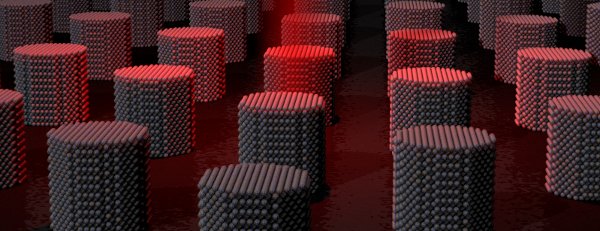Science speeds up hard drives with heat

Traditional wisdom would have you believe that cooling a hard drive down increases its performance and reduces the chance of failure. That's why you put fans at the front of your case – to get cold air blowing in the direction of those fast spinning platters which warm up fast thanks to friction.
Not so, says a team of researchers at the University of York . They want to make your drive even hotter, because they've discovered a way to change the state of magnetic bits on the surface of a disc using nothing but a pulse of heat. Not only does their method write data more quickly than when using magnetic heads, they say, but you get more data per square inch too.
The York team's finding have been published a paper in Nature Communications , and demonstrate the ability to switch polarity in a magnetic substance using heat alone for the first time. Using very quick, focussed pulses they claim to have defied the existing understanding of material science and flipped the polarity of magnetised bits without using a second, more powerful magnet.
One of the researchers, Thomas Ostler, explained that the process requires a lot less energy than the usual write-head-over-a-platter method of recording on a disc.
“This revolutionary method allows the recording of terabytes of information per second,” he said, “Hundreds of times faster than present hard drive technology. As there is no need for a magnetic field, there is also less energy consumption.”
The research comes at a pertinent time for the hard drive industry, which is running up against the physical limits for data capacity using current techniques. Western Digital, for example, favours a future in which heat is used alongside a magnetic head to reduce the size of each bit recorded.
Obviously it's very early days for the York team's work yet, which may never be commercialised. But for bringing together most of the strengths of SDDs and HDDs in one device, it's one worth watching.
Keep up to date with the most important stories and the best deals, as picked by the PC Gamer team.
(via Engadget )

